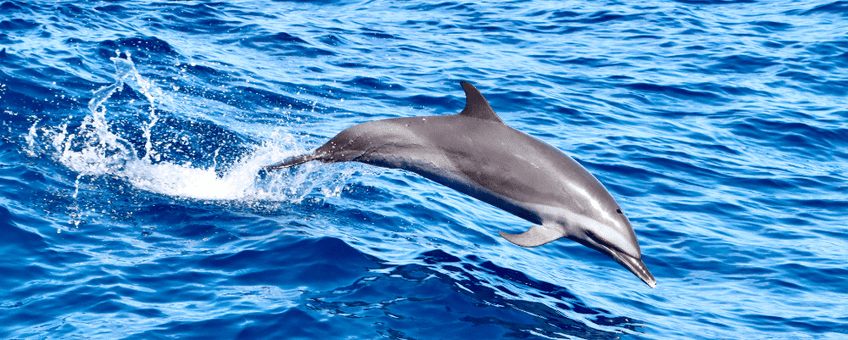
Whale and dolphin research expeditions 2022
Caribbean Cetacean Society, Dutch Caribbean Nature Alliance (DCNA), World Wide Fund for Nature – NetherlandsThe information is used to improve the conservation of cetaceans – whales and dolphins – in the wider Caribbean region. The expeditions started in Martinique and covered a total of eleven Caribbean islands during their journey. Six scientific expeditions of fifteen days took place between March and September 2022.
The expeditions also focused on improving capacity building in the Caribbean by training the several representatives of the Protected Area Management Organizations to conduct marine mammal science. Therefore, representatives from the Dutch Caribbean joined the third and sixth joint scientific expedition .
The expeditions are coordinated by the Caribbean Cetacean Society (CCS) and made possible thanks to several partners including the World Wide Fund for Nature the Netherlands (WWF-NL), the Dutch Caribbean Nature Alliance (DCNA) and other partners.
Ti Whale An Nou 2022 Expedition Overview
Watch this video and learn more about this expedition and some participants from the Dutch Caribbean region.
An impression of the Ti Whale An Nou expeditions (Source: CCS)
Protecting whales and dolphin in the Caribbean
In the next video, Tadzio Bervoets, former Director of DCNA, explains why DCNA is supporting the CCS and DCNA’s strategy to get support from the governments for the protection of transboundary species.
Tadzio Bervoets talks about CCS and DCNA's efforts to protect transboundary species (Source: DCNA)
Whale and dolphin research program in the Caribbean
Jeffrey Bernus, CCS Expedition Leader, explains more about the goal of CCS and context of the wider Caribbean region in which CCS operates. He also higlights why it is important to involve different islands throughout the wider Caribbean region, and lessons learned from the previous expeditions.
CCS Expedition Leader Jeffrey Bernus (Bron: DCNA)
Transboundary Protection

Fortunately, the marine mammals of the Caribbean Netherlands receive special protection within the the Yarari Marine Mammal and Shark Sanctuary. This sanctuary comprises all the waters of Bonaire and Saba and St. Eustatius. The name of the sanctuary 'Yarari' is a Taíno Indian word, meaning ‘a fine place’ as it is intended to provide just this for marine mammals, sharks and rays. A special edition of BioNews magazine contains information on the Yarari Marine Mammal and Shark Sanctuary and an overview of the current knowledge on marine mammals, sharks and rays in the Dutch Caribbean. The goal is to eventually extend the borders of this sanctuary to also include the neighboring Dutch Caribbean islands: Aruba, Curaçao and St. Maarten.
More information
- Learn more about the marine mammals of the Dutch Caribbean by checking out the Yarari Marine Mammals and Shark Sanctuary in the special edition of BioNews magazine.
